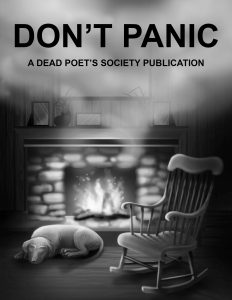 A unique “Yearbook in Poetry” assignment proved to be an exercise in experiential learning for teacher candidates (TCs) in course director Lorin Schwarz’s Teaching English in the Intermediate/Senior Division course. The teacher candidates peer-edited, collectively decided on a title and voted on the cover art for their publication. The assignment enabled the TCs to put together the yearbook using a variety of pedagogical theories, curriculum practices and classroom procedures, all of which they will have to utilize and put into practice in their future role as classroom educators.
A unique “Yearbook in Poetry” assignment proved to be an exercise in experiential learning for teacher candidates (TCs) in course director Lorin Schwarz’s Teaching English in the Intermediate/Senior Division course. The teacher candidates peer-edited, collectively decided on a title and voted on the cover art for their publication. The assignment enabled the TCs to put together the yearbook using a variety of pedagogical theories, curriculum practices and classroom procedures, all of which they will have to utilize and put into practice in their future role as classroom educators.
Teacher candidates chose their favourite classical poem that meant something to them, connected it to class readings and research, wrote about it, and then did a reading of the poem to their classmates, which included commentary on how they interpreted the poem.
“The beauty of this assignment was that the teacher candidates can do exactly what we did in our seminar in their own classrooms, providing their students with the same kind of experience of reading, writing sharing and celebrating literacy,” said course director Lorin Schwarz. “It also pushed them to find their own personal voice to explain their poems of choice forcing some of them to work outside of their comfort zones.”
The yearbooks, which were printed as an anthology for all of the teacher candidates to keep, are functional year-long poetry units that satisfy Ministry of Education curriculum expectations across the Language Arts and English curriculum documents, so teacher candidates can use the yearbooks in their classrooms and provide their students with the experience of reading, writing, sharing and celebrating literacy.
“Poetry is the essence of literacy and is a big theme in English Education,” said Schwarz. “The amazing irony is that students who are comfortable with poetry are also often more adept to reading, writing, listening and speaking; they understand media and metaphor and imagistic thought; they are more sensitive to other points-of-view and the ways in which language works to define us. Poetry allows us to share who we are and what we know about each other which is where all teaching and learning begins.”
